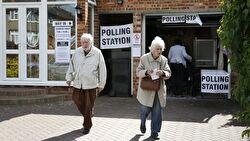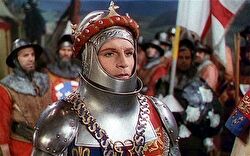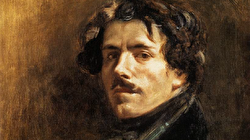
"You’re a Brit, aren’t you?” It was an accusation. His face was twisted, angry and only about six inches away from mine. I was backed against a wall outside a drinking club in west Belfast, and two of his friends stood on either side. This is how it begins, I thought, starting to panic. It ends with a beating in a lock-up garage. Or worse.
It didn’t, of course. Within less than a minute an older man had said something and the three youths laid off, sauntering away without a word: next time it really might be an undercover British soldier. I knew what a “Brit” was, all right. But I had never been called one until I arrived in Northern Ireland to cover the war there in the 1970s.
Belfast was a dark place, a conflict murky with injustice, bigotry, exploitation, long memories and short fuses. The terminology reflected what you thought the violence was. The British preferred to call the everyday bombings, gunfights, murders, military funerals and armoured cars on the streets “the Troubles”. It might look like a war, but it wasn’t.
To the IRA, the violence was definitely part of a war to force the British out of the last corner of their Irish colony. The “loyalist” settler community, almost exclusively the descendants of Scots and others who had been brought to Ireland to make the place safe for England, fought for the right to remain British, despite not living in Britain. The epithet “Brits” referred to the apparatus of imperialism, specifically the Army, and by extension all of us who came to Ireland from England, Wales or Scotland – although it was really the English who were hated. I did not much like the term.
I had arrived in Ireland woefully ill-equipped to understand what was happening. Anti-colonial wars belonged to another time in history. This is even more the case for many British people now: the average age in Britain is 40, which means that, apart from a vague awareness of the war to reconquer the Falkland Islands, or the ceremonial handing back of Hong Kong to the Chinese in 1997, most citizens have little sense of Britain as an imperial power.
Anyone who has grown up – or grown old – in Britain since the Second World War has done so in an atmosphere of irresistible decline, to the point where now Britain’s imperial history is no more than the faint smell of mothballs in a long-unopened wardrobe.
Its evidence is all around us, but who cares? It is the empty fourth plinth at the north-west corner of Trafalgar Square that interests us, not the three that are occupied by a king and a couple of imperial generals. Ask us what those generals did and we’re lost.
Even the most exotic empire-builders have sunk from our minds. Charles Gordon is a good example. His unhinged mission to Khartoum and subsequent beheading raised him to saint-like status in Victorian Britain. A statue, showing the great martyr befezzed and cross-legged on a camel, was placed in the middle of the traffic at the main crossroads in Khartoum, to remind the Sudanese who was boss. At independence in 1956 they took it down and sent it back to England, where it was re-erected at the school in Woking founded at Queen Victoria’s behest as a memorial to the general. It stands there, grey and unexpected, to this day.
Ever since the moment when I realised that there were people who saw me differently because of my country’s history, I have wondered what that history has done to us as a nation. We think we know what the British Empire did to the world. But what did it do to us?
For the most part, we look back on our imperial history simply as the actions of men and women we cannot identify with; the product of motives we do not really understand. It is emotionally easier and politically more convenient to inquire no further. But it is not particularly helpful. If we accept – as any thoughtful Indian does – that the British Empire had a shaping influence on India, then where is the common sense in claiming that the same history has not had at least as important a role in Britain? Can we seriously pretend that a project that dominated the way that Britain regarded the world for so many hundreds of years has had no lasting influence on the colonisers, too?
It is nearly 50 years since the then US Secretary of State, Dean Acheson, made the only remark for which he is remembered in Britain, that “Great Britain has lost an empire and has not yet found a role”.
The remark has since become tediously familiar, but the fact that the observation remains true all these years later reflects the continuing significance of the imperial experience. “Finding a role” has – along with not going bankrupt – been the main task of every British government for the last 60 years. In a strange way, the one place which has yet properly to decolonise itself is Britain.
It is most obvious in international affairs, where the imperial habit remains a very hard one to break. When a British prime minister puffs out his chest and declares he “will not tolerate” some African or Middle Eastern despot, he speaks not as a creature of a 21st-century political party in a dilapidated democracy but as the latest reincarnation of Castlereagh or Palmerston – somehow, British foreign policy has never shaken off a certain 19th-century swagger, and the implied suggestion that, if anything happens to a British citizen, a Royal Navy gunboat will be dispatched to menace the impertinent perpetrators.
It is not entirely their fault that British politicians bluster in this fashion – the frayed old frock coat comes with the job. The merest glance at regimental battle honours in the British Army discloses a roll-call of colonial wars, from Abyssinia to Zululand, by way of everywhere from Canada to New Zealand. This long history of fighting in faraway places of which we know next to nothing has left the British Army positively eager to be deployed across the world.
When, for example, the Grenadier Guards were sent to Afghanistan in 2007, they arrived sporting battle honours from the Crimean War, the Opium Wars, a campaign against Islamist forces in Sudan in the 1890s, another to subdue the Boers in South Africa at the turn of the 20th century, and a “temporary” British intervention in Egypt which began in 1882 and lasted until the middle of the 20th century. Once you’ve got that sort of pedigree, you’re keen to measure yourself against it. And perhaps, at another level, this history of involvement overseas also helps to explain why it is that British charities play such a disproportionately large role in international development and disaster relief.
Then there are Britain’s constitutional arrangements, not least the country’s continued possession of a monarchy. The anthropologist Arthur Hocart spent years attempting to understand the origins of kingship and concluded that all he could say with certainty was that the earliest known religion was a belief in the divinity of kings. No rational person has believed that nonsense for centuries. But the fact that Britain is still ruled by a representative of this prehistoric institution is in large part the consequence of empire. Giving Victoria the bombastic title of empress in 1876 had been a cost-free gesture by that great regal flatterer Benjamin Disraeli. But the monarchical tone of empire was useful in co-opting the support of other kings, from Bangalore to Zululand, enabling a form of colonisation in which the new subject state might claim hardly to notice that it had been emasculated. One Basuto king is said to have told Victoria: “My country is your blanket, O Queen, and my people the lice upon it.” Across the world, cities, provinces, lakes, mountains, gardens, parks, highways, stations, puddings and flowers were named after Victoria, and many of her people assumed that the Great White Queen was an integral part of the empire’s success. She was not: she just got lucky.
By the same token, you could say that Queen Elizabeth II was unlucky. Her role has been to preside over the disappearance of empire, as the number of British possessions has shrunk to a few curious dots in the seas and oceans of the world.
But, just as lands were claimed in the name of a British queen, so their independence required a royal witness, with Elizabeth or one of her family on hand to watch as the British flag was lowered and the flag of the new state raised. Look at any photograph of Commonwealth leaders since the early 1950s and the one face you can almost guarantee to find there is that of Elizabeth II – and it is largely due to her that the institution, such as it is, survives at all: like the empire, it smells of monarchy.
Yet the empire did more than consolidate the position of the monarchy. It did much to make the political identity of Britain, too. Of the many elements that came together to create a “British” identity – Henry VIII’s break with Rome, say – the importance of England’s growing basket of overseas possessions cannot be exaggerated.
In the 17th century, as they watched the English begin to pile up overseas possessions, Scots had dreamed of a colony or so of their own and attempted to establish a settlement in Panama. They reckoned without the difficult terrain, the pestilential climate, and the perfidious English. The scheme collapsed in 1700, and with it ambitions for a Scottish empire. Henceforth, the Scots would become some of the most effective builders of the joint enterprise of a British empire. In the first 50 years after the 1707 Act of Union, 30,000 Scots settled in America. Others would pour into Canada, Australia and New Zealand. By 1776, there were 220 Scots employed at the highest level of the administrations in Madras and Bengal: Sir Walter Scott would come to describe India as “the corn chest for Scotland”. Explorers like Mungo Park cut through jungles. David Livingstone left Lanarkshire to become the most famous missionary in history. Scottish traders like William Jardine and James Matheson built a trading network across the Far East. One-third of colonial governors between 1850 and 1939 are said to have been Scots.
The Army became the most visible means by which the distinctive characteristics of the subjugated Welsh, Scots and Irish were channelled into the British identity. By the early 19th century, both Ireland and Scotland were sending disproportionately large numbers of soldiers to fight Britain’s colonial wars. Irish formations like the 18th Regiment of Foot saw combat in North America, Egypt, China and South Africa; the Connaught Rangers in South America, India and in both wars against the Boers. The 1st Battalion of the 24th Foot, which became the South Wales Borderers, lost 540 of its men at Isandlwana in the Zulu Wars. The Royal Welch Fusiliers, who had battled American revolutionaries at Bunker Hill, Yorktown and Lexington, remained inordinately proud of the archaic spelling of their name: Robert Graves, who served with them in the First World War, thought that it recalled the Wales of Henry Tudor and Owen Glendower.
The empire also changed the very genetic make-up of its citizens. Since history began, Britain has been a nation of immigrants, whether Romans, Scandinavians, Irish, French, Jews, Italians or Dutch.
But the empire drew migrants from across the planet. The world’s oldest Chinatown is in Liverpool. Hundreds of thousands of Irish poured into English and Scottish cities in the middle years of the 19th century. By the end of the century, there were about 50,000 Germans and perhaps 150,000 Russian Jews in the country. Immigrant families built banks such as Rothschilds, Barings and Warburgs, gave us high-street retailers like Marks & Spencer, Moss Bros, Burton and Topshop, and supermarkets like Tesco. The first British Indian MP was elected in 1892. In the second half of the 20th century, vast numbers of migrants from one-time colonies in the Caribbean, Africa and the Indian subcontinent landed in Britain and changed the look and feel of many cities. These communities produced writers and artists who invigorated the native arts, sportsmen and women who raised standards of performance – and cooks who did the national cuisine a big favour.
The traffic in the other direction had been enormous, too. The distinctive character of the British Empire – unlike its Russian or Austro-Hungarian counterparts – was its immense geographical spread, from tiny atolls to entire continents.
This was partly because its perpetrators lived on an island: it is striking that the age of imperialism begins only after Queen Mary had lost Calais, the last English possession in France, in 1558. Thereafter, the European concern of most British governments was merely to see that no individual power became strong enough to menace British possessions overseas. That the English had seawater in their veins tended to make overseas adventures more attractive than they might have seemed: when you are surrounded by sea, any journey anywhere involves travelling by water – the difference between visiting Norway and visiting New Zealand is merely one of degree.
There is no completely reliable estimate of how many people left Britain for a new life overseas during the years of empire, but most of them never returned, and, by 1900, a majority of English-speakers were living outside Europe. The British diaspora created a network of family connections stretching from a grey, damp island in the North Atlantic to dusty sheep stations in Australia, rough-and-ready mining towns in Africa and snowy wildernesses in Canada. So, while at any one time the imperial life was being lived only by a minority of the population, the colonial experience was familiar to many more.
When the British went to live in the lands they conquered, they were confronted immediately with the question of what made them distinct from the people among whom they lived. Indeed, when you read the popular literature of the period, its most offensive characteristic is the assumption of racial superiority over “brutes” and “savages”. As Cecil Rhodes put it, “We are the finest race in the world and the more of the world we inhabit the better it is for the human race.”
As the empire matured, a peculiar illogicality seized the British: we rule more of the world than any other nation, therefore we must be superior to any other nation.
In fact, of course, it was technological advance and entrepreneurial flair which gave birth to the empire. But a belief in some moral pre-eminence offered reassurance to the anxious imperialist. For the majority of empire officials – district officers and magistrates, policemen, teachers, farmers and engineers – the role was perhaps justification itself.
Yet it was a role in an alien land, and the customs and conventions of Hove or Huddersfield were absent. So the daily business of living in a British community – even a community of one or two, out in the bush – required the invention of a set of norms, of things which were done at certain times of the day, and things which were definitely not done at any time. These communities were obliged to define what being British meant. In the bungalows and clubs, the sundowners on the verandah and the suet puddings at the dinner table, they were acting out a version of what life was like at home. But it was a not-quite-perfect representation.
Creating and running this enormous enterprise required a certain type of individual, which gave Britain its idiosyncratic public-school system, designed to produce not intellectuals but “sound chaps” – capable, dependable, resourceful. They were to be oblivious to discomfort and able to inspire respect, for through them was the reality of the British Empire to be made clear. Parents understood the job of the school. In Tom Brown’s School Days, Squire Brown knew what he wanted from the education his son was to receive at Rugby. “What is he sent to school for?” he asks. “If only he’ll turn out a brave, helpful, truth-telling Englishman, and a gentleman, and a Christian, that’s all I want.”
Add in a firm handshake and an ability to play cricket, and you have the makings of a district officer. That such a key part of the British educational system was for generations geared not to mental achievement but to something else – “pluck” is perhaps the best word for it – seems at odds with the fact that Britain has nearly twice as many Nobel Laureates as France, five times the total of Italy, Russia or Japan. But these men and women of intellectual pre-eminence are a memorial not to the famous Victorian public schools, created expressly with the empire in mind, but to the country’s grammar schools and to the huge intellectual contribution made by refugees and migrants.
The fate of many of the products of these public schools is captured in one of Rudyard Kipling’s most resonant poems about empire, “Arithmetic on the Frontier” (“A great and glorious thing it is/To learn, for seven years or so,/The Lord knows what of that and this . . .”). It describes what happens when a young public-school subaltern is sent to the North-West Frontier.
A scrimmage in a Border Station
A canter down some dark defile
Two thousand pounds of education
Drops to a ten-rupee jezail.
The Crammer’s boast, the Squadron’s pride,
Shot like a rabbit in a ride!
The walls of churches across Britain are plastered with memorials to young men who died in inconsequential ambushes like this, or were carried off by fever in some obscure location the churchgoers at home could not place on a map of the world.
The memorials to these imperialists created a sense that there really were corners of foreign fields that were forever England. The deaths of grander figures created a distinctive empire iconography, as familiar in its way as stained-glass representations of the Passion of Christ. Tableaux depicting the last moments of General Wolfe during the battle for Quebec, surrounded by his grieving officers and native Indian guide, of the mortally wounded Horatio Nelson lying in the bowels of HMS Victory, or of General Gordon serene on the steps of the palace in Khartoum, about to be speared to death, became familiar to countless numbers of citizens. The streets of our cities are peopled with statues and monuments to these generals, admirals and explorers who died to ensure that Britannia’s bounds were set wider still and wider.
But the most vibrant legacy of empire evident today is in the sports that were either invented or codified to keep its young men fit and occupied and somehow to pass on to the colonised – through cricket, soccer, rugby, tennis or golf – some of the imperial values.
These sports were also supposed to inculcate personal courage and collective loyalty in the builders of empire. The supreme imperial game was cricket – as an 1868 guide to outdoor sport put it, “We even think that square-leg to a hard hitter is no bad training for coolness at the cannon’s mouth.”
It is absurd, of course – British victories against tribal peoples were so often the triumph of guns against spears. But it is the authentic language of empire. At the battle of the Alma in the Crimean War, Sir John Astley of the Scots Guards watched as a Russian cannonball cut through his company. He recalled in his memoirs that he had shouted to one of his men “who was our best wicket-keeper” to catch it. The man replied, “No sir! It had a bit too much pace on. I thought you was long stop, so I left it for you.” The cricket analogy was ever present.
A couple of generations have now grown up ridiculing that sort of attitude. Everyone knows that war is not a game, and no one is much interested in the idioms that made it possible for our ancestors to deal with danger and death. It has been a long time since the age and beliefs of empire seemed an attractive subject for creativity. From EM Forster and JG Farrell to Salman Rushdie and Zadie Smith, the stuff of fiction is the end of empire and its aftermath. In 1960, you might have gone to the cinema to see Kenneth More playing a polished British Army captain smuggling a six-year-old Hindu prince out of danger in North West Frontier. By 1970, you were more likely to be watching Carry On up the Khyber, with Sid James as the military governor, Sir Sidney Ruff-Diamond, and Charles Hawtrey as the scandalously underpanted Private Widdle in the 3rd Foot and Mouth Regiment.
By the turn of the millennium, there was hardly an imperial hero who had not had a few buckets of mud thrown at him. The great explorers of Africa, such as Richard Burton, were racists.
Captain Scott had condemned his men to icy deaths in Antarctica by vainglorious bungling. The sexuality of the hero of Khartoum, General Gordon, was suspect. Robert Baden-Powell, founder of the Boy Scouts, was cracked.
The British thoroughbred had become a rattle-ribbed old nag. The country had been exhausted and impoverished by two world wars, had withdrawn from its colonies and was demonstrably unsure quite where its future lay. The United States, the new global policeman, professed itself an enemy of imperialism and, in first undermining British attempts to manage the Palestine issue, and then seeing off the duplicity behind the plot to seize the Suez Canal in 1956, delivered mortal blows to the country’s self-confidence. Colonies seemed to belong to another time in history.
And it had all passed so quickly. The fate of the crumbling Ottoman Empire worried European politicians for the best part of a century: the British Empire’s illness was speedy and fatal and carried it off in a few decades. The British came out of both world wars on the winning side, and so never had the need to reimagine themselves as anything other than what they had once been, nor the need to think much about the legacy of their actions. All that was required was a readiness to accept themselves much as they had been beforehand, but in a diminished state. How much better it might have been to have had the chance to devise another destiny.
The empire on which the sun never set was Britain’s main international preoccupation for a very long time. But, instead of trying to grapple with the implications of the story of empire, the British seem to have decided just to ignore it. It is perhaps possible that this collective amnesia has nothing whatever to do with the country’s lamentable failure to find a comfortable role for itself in the world. But it seems unlikely. The most corrosive part of this amnesia is a sense that because the nation is not what it was, it can never be anything again.
If only the British would bring a measure of clarity to what was done in their country’s name, they might find it easier to play a more useful and effective role in the world.
Article Courtesy of The Telegraph. Original article here



